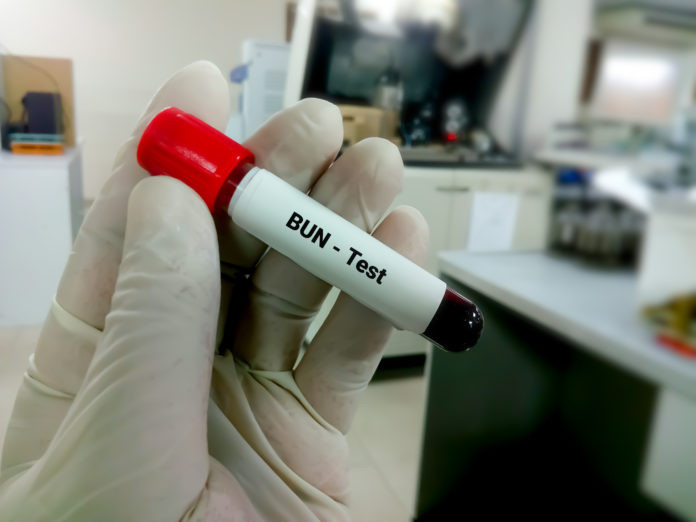Definition
Alkaline phosphatase (ALP) test is included in a comprehensive metabolic panel. This test measures the concentration of ALP in the blood. ALP originates from your liver and bones and is present in the body. However, it is primarily associated with the liver, hence often referred to as a liver enzyme. The specific function of ALP remains unclear.
If the level of ALP is found to be abnormal in the blood, it may indicate tissue damage or disruptions in normal physiological processes. Abnormal ALP levels could be found in liver disease, bone disorders, and chronic kidney disease. However, an ALP test alone cannot pinpoint the source of abnormal levels, necessitating additional tests for accurate diagnosis.
Indications
ALP test is a versatile tool that can be utilized for the purposes of screening, diagnosing, and monitoring many health issues, including liver or bone diseases. During medical check-up, if your doctor requests a comprehensive metabolic panel (CMP), ALP test could be included as well.
If you routinely take certain vitamins, supplements or medicines, such as acetaminophen or statins, that have side effects that could potentially affect the liver, you could be advised by a doctor to have ALP testing. Your physician would inform you if any of the medications or supplements you currently take are suspected to affect your liver.
An ALP test can also assist your doctor in determining the cause of liver dysfunction or bone-related issues. Additionally, it can aid in monitoring preexisting health conditions, such as cancer, hepatitis (liver inflammation), or cirrhosis (liver scarring).
We also have an article on liver cirrhosis which you can read here: Liver cirrhosis - Definition, Cause and Risk Factor.
Contraindication
There are no individuals for whom it is advised against to check their alkaline phosphatase; everyone is eligible to undergo blood tests for monitoring alkaline phosphatase levels in their bodies.
Preparations Prior to Test
Since this test could be performed with other tests, you could be asked to fast or abstain from consuming food and beverages, for 6 to 12 hours before the test. Ensure your doctor is aware of any medications, vitamins or supplements you may be taking. This involves over-the-counter medications and illegal substances that you may take. Whether or not you need to stop taking any of these medications for the test depends on your doctor’s instructions.
Test Procedures
A healthcare professional will extract a blood sample from a vein, usually in your arm, using a tiny needle. Once the needle is placed, a little sample of blood will be drawn into a test tube. You may experience a slight stinging sensation when the needle is inserted or removed.
Normal and Abnormal Values
The normal range for alkaline phosphatase levels can vary across different laboratories. The typical range for normal ALP level is 44 to 147 international units per liter (IU/L), even though there are other suggestions that a normal range of ALP is 30 to 120 IU/L. Hence, you could refer to the precise reference range used by the laboratory where your blood is tested or consult your doctor about your test results.
Furthermore, the levels of ALP could also differ depending on the age and gender. Elevated ALP levels are commonly observed during childhood and puberty as a result of the growth and development of bones. Among people with the age of 15 to 50 years, males often exhibit slightly elevated ALP levels compared to females. Elevated ALP levels could also be found in elderly.
Results and Suggestions (Follow-Up Tests)
An elevated level of alkaline phosphatase can serve as a sign of liver or bone diseases, as well as various other medical issues. However, elevated ALP levels may not necessarily indicate a medical issue. Analysis of your test results may require evaluation of many factors, such as:
- Blockages of the bile ducts frequently result in significantly elevated ALP levels, however, various degrees of ALP elevations could not specifically differentiate between liver diseases and other medical diseases.
- ALP is frequently assessed in conjunction with other liver enzymes, including aspartate aminotransferase (AST), alanine aminotransferase (ALT), gamma-glutamyl transpeptidase (GGT), and/or 5′-nucleotidase (5’-NT). Evaluating the levels of ALP together with these enzymes could aid in evaluating the test result.
- Any symptoms you are experiencing will be considered alongside your ALP levels.
It is possible that ALP levels could increase in people without any underlying diseases. ALP levels are often found elevated in pregnant women, children and adolescents, as well as elderly. ALP could also increase after eating fatty foods in individuals with particular blood types.
ALP levels can be unusually low, although this is not very frequent. Low ALP levels can be caused by factors such as malnutrition, hypothyroidism, and certain rare hereditary illnesses that impact liver function.
Consult to The Right Doctor
It's essential for you to engage in discussions with their doctor or internist regarding the interpretation of your test results. Understanding the test requires taking your test outcomes into account along with your overall state of health, susceptibility factors, and symptoms. Your doctor can tell you what your test results mean and how they relate to your medical condition or your disease.
Want to know more information about laboratory, radiology and other examination results? Click here!
- dr Hanifa Rahma
Alkaline Phosphatase. (2022). Retrieved 24 January 2023, from https://medlineplus.gov/lab-tests/alkaline-phosphatase/
Alkaline Phosphatase (ALP). (2021). Retrieved 24 January 2023, from https://my.clevelandclinic.org/health/diagnostics/22029-alkaline-phosphatase-alp
What Is an Alkaline Phosphatase Test. (2021). Retrieved 24 January 2023, from https://www.webmd.com/digestive-disorders/alkaline_phosphatase_test
Alkaline Phosphatase Level (ALP) Test. (2021). Retrieved 24 January 2023, from https://www.healthline.com/health/alp
Alkaline Phosphatase (ALP) Test. (2022). Retrieved 24 January 2023, from https://www.testing.com/tests/alkaline-phosphatase-alp/
What do Abnormal ALP Levels Mean?. (2023). Retrieved 24 January 2023, from https://www.medicalnewstoday.com/articles/321984
ALP - Blood Test. (2023). Retrieved 24 January 2023, from https://www.mountsinai.org/health-library/tests/alp-blood-test
Alkaline Phosphatase. (2022). Retrieved 24 January 2023, from https://www.ncbi.nlm.nih.gov/books/NBK459201/
Alkaline Phosphatase. (2023). Retrieved 24 January 2023, from https://www.urmc.rochester.edu/encyclopedia/content.aspx?contenttypeid=167&contentid=alkaline_phosphatase
What is Low Alkaline Phosphatase?. (2022). Retrieved 24 January 2023, from https://www.verywellhealth.com/alkaline-phosphatase-5076137












